AARP Hearing Center

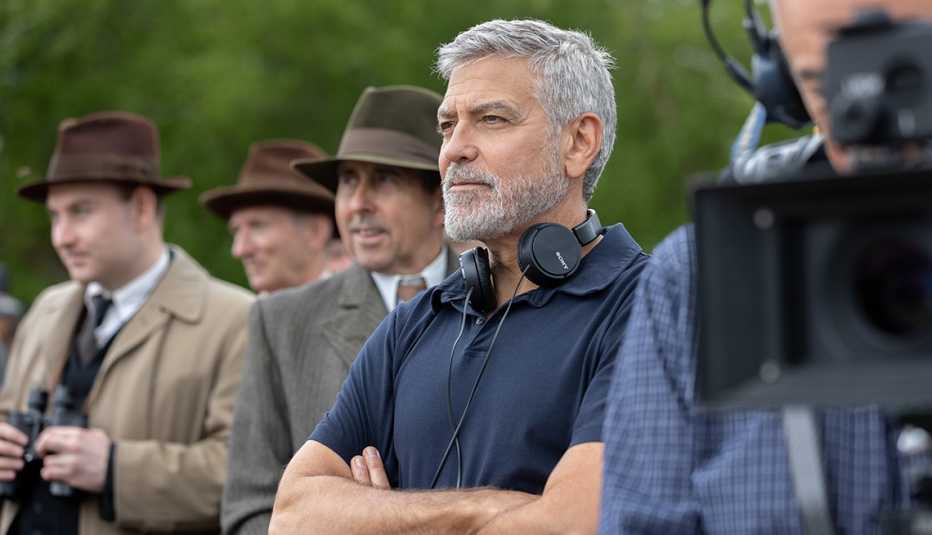
George Clooney, 62, directed The Boys in the Boat (in theaters Dec. 25), the movie adaptation of Daniel James Brown’s No. 1 New York Times bestseller about the University of Washington rowing team that made it to the 1936 Olympics in Berlin, where (spoiler!) they beat the favored German team for the gold medal. Clooney and Joel Edgerton, 49, who plays UW rowing coach Al Ulbrickson, tell AARP about what the story means to them.
Your movie is in the spirit of Rocky — but is the story about more than just a rousing victory against all odds.
George Clooney: It’s about class. It was in 1936, right dead center in the middle of the Depression, when a lot of the divisions in class became much more stark.
And the UW rowing team were poor kids, sons of loggers, farmers, shipyard workers and manual laborers. The leader, Joe Rantz (played by Callum Turner), was abandoned by his father in childhood, living on the edge, right?
Clooney: Yes. So the idea of “pull yourself up by your bootstraps” was harder when you didn’t have bootstraps, you know? What we loved about it is this completely factual, beautiful underdog story. They rowed because they were hungry, and literally the way they could eat was by competing. And they just happened to be the Beatles [of rowing], and they just didn’t know it.
Joel Edgerton: I couldn’t actually believe I had never heard the story before — although some of the greatest sports stories do go a little bit dormant, or buried forever. I loved the idea of playing this coach, who to me was an archetype, one of those guys that looks like he really wants to be anywhere else but coaching the team. That sort of tough-love dad coach, so stoic.
Also, after a really tough couple of years of COVID, I would love to be able to share with my kids a story where people realize that they’re better as a unit. I think our core value as human beings is that we want to be good to each other, empathize with each other. I want to be involved in a story like this at this time.

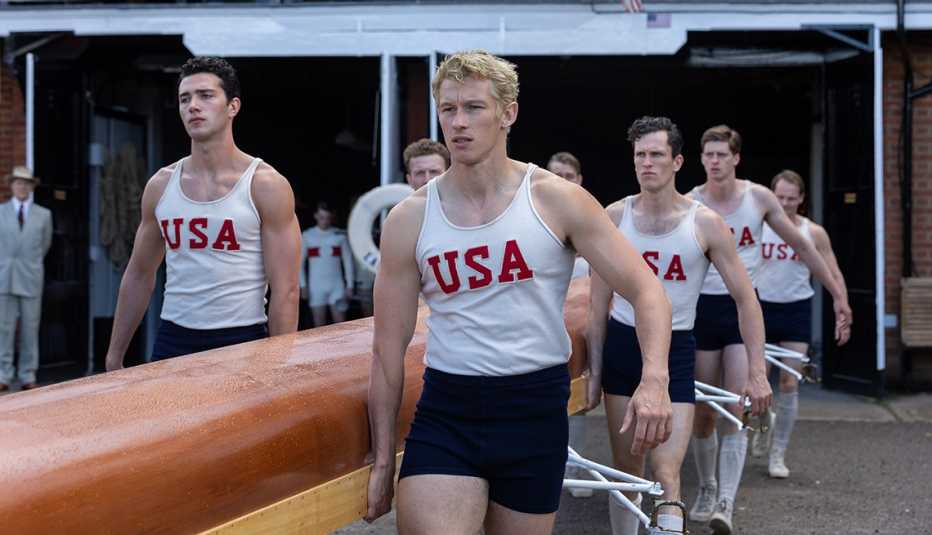
The UW crew’s Husky Clipper boat went from last place to first, winning by six-tenths of a second, while Hitler watched and filmmaker Leni Riefenstahl filmed the crowd shouting “Deutschland! Deutschland!” It was the first televised Olympics. Was Hitler disappointed to see Americans beat his master race crew?
Clooney: They did beat Hitler. Look, sports films are kind of like romantic comedies. We kind of know how it ends. I mean, in The Natural I guess we didn’t know, but it wasn’t real. In general, we know how it’s going to end. The point is, are we going to enjoy that journey? Are we going to be inspired by that? I thought the book did all of those things. And so our job was just to not screw it up.

































































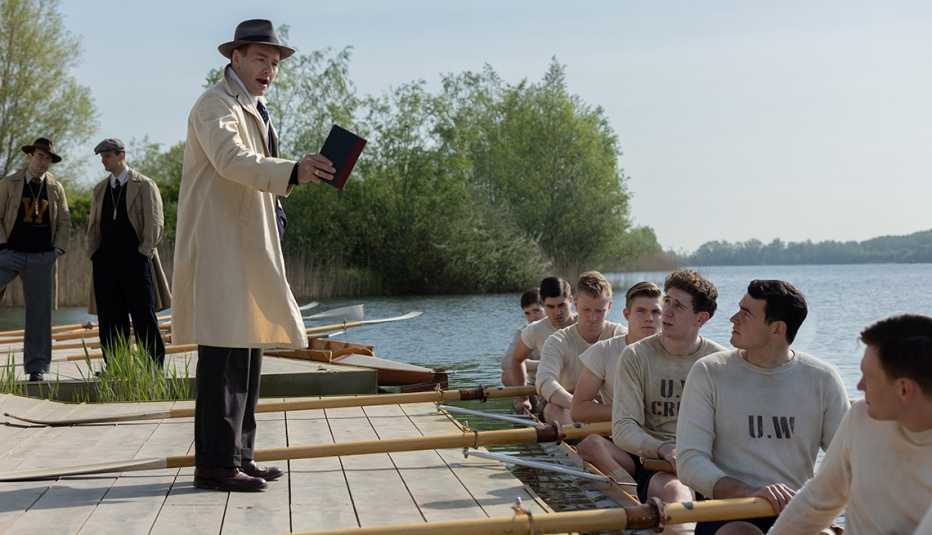
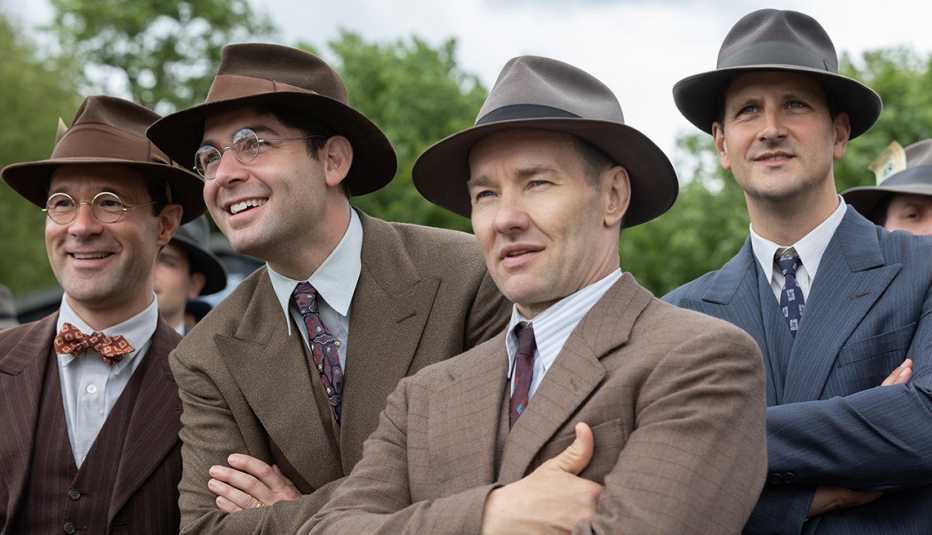


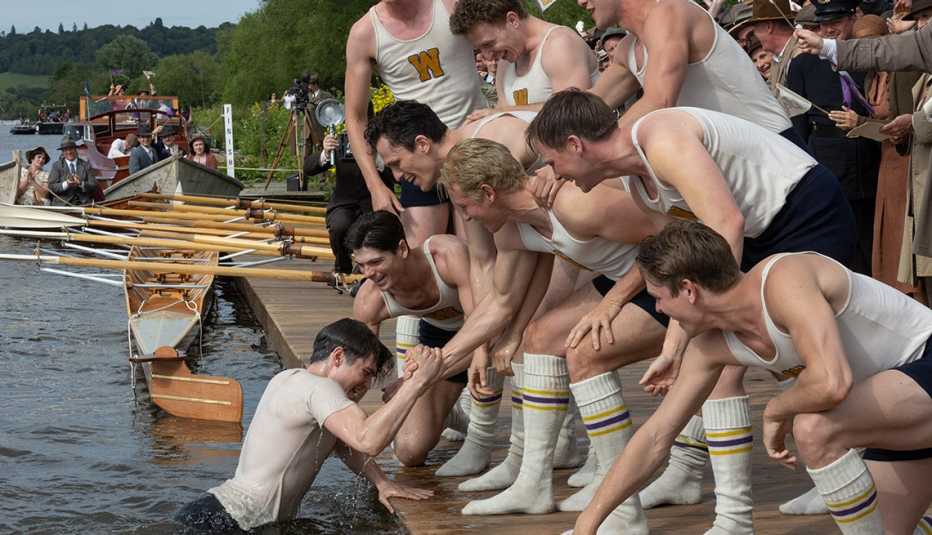
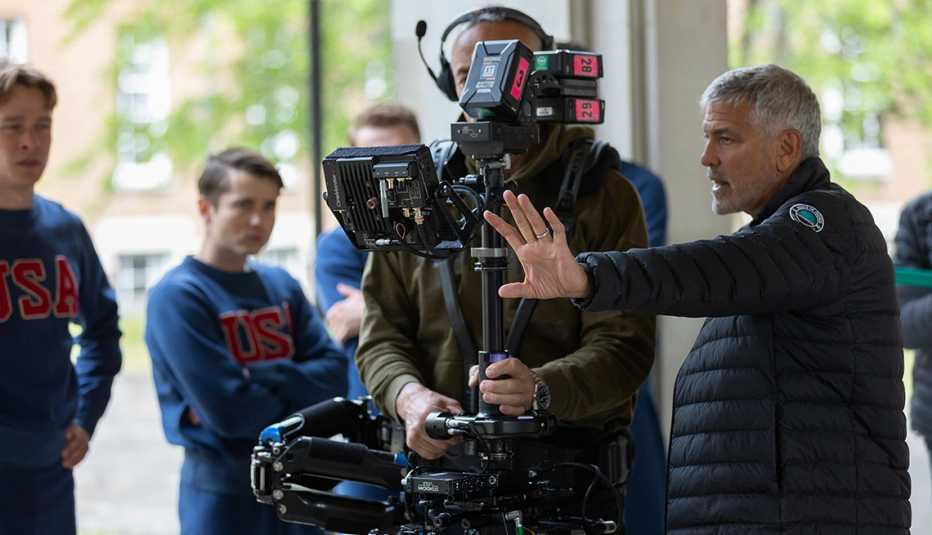
More From AARP
How Accurate Is the Leonard Bernstein Movie ‘Maestro’?
A Pulitzer-winning critic who knew him gives the inside storyWhy ‘Godzilla Minus One’ Is the Biggest Unexpected Hit Since ‘Barbie’ and ‘Oppenheimer’
The monster movie is the monster hit of the holiday seasonRecommended for You